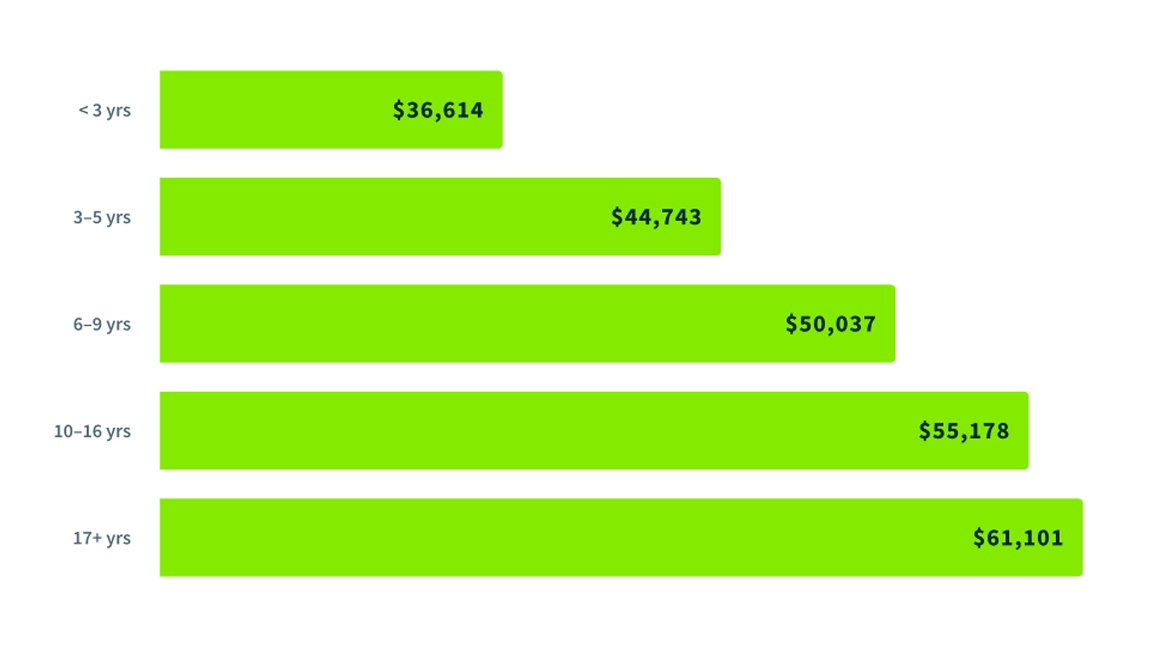Are you curious about how much HVAC professionals make? If so, you’re in the right place. In this article, we’ll explore the average salary for HVAC jobs and give you an insight into what you can expect in this field. Whether you’re considering a career change or simply want to know more about the earning potential in the HVAC industry, we’ve got you covered. So, let’s dive right in and discover the exciting world of HVAC job salaries!
Understanding HVAC Jobs Salary
If you are considering a career in the HVAC industry, it is important to understand the factors that can influence the salary you can expect to earn. HVAC jobs encompass a wide range of roles, from technicians and installers to sales representatives and managers. Each of these roles comes with its own salary range, which can be influenced by factors such as location, experience, education, and certifications. In this article, we will explore the different types of HVAC jobs and delve into the average salaries associated with each role.
Factors that Influence HVAC Jobs Salary
Several factors can influence the salary of HVAC professionals. These factors include location, experience, education, and certifications.
Location
The location of an HVAC job plays a significant role in determining salary. In areas with a high demand for HVAC services and a shortage of skilled professionals, such as densely populated cities or regions with extreme climates, HVAC professionals may command higher salaries. Conversely, in areas with a surplus of HVAC professionals, salaries may be lower due to increased competition.
Experience
As with most professions, HVAC professionals with more experience generally earn higher salaries. This is because experienced HVAC technicians and other professionals often possess a deeper understanding of complex systems and have a proven track record of successful projects. Employers value this expertise and are willing to compensate experienced professionals accordingly.
Education and Certifications
While not always a requirement for entry-level HVAC positions, further education and certifications can significantly impact salary potential. HVAC professionals who continue their education and obtain relevant certifications often gain a competitive edge in the job market. Certifications such as the EPA 608 Certification or various NATE (North American Technician Excellence) certifications demonstrate a higher level of expertise, which can lead to higher-paying job opportunities.
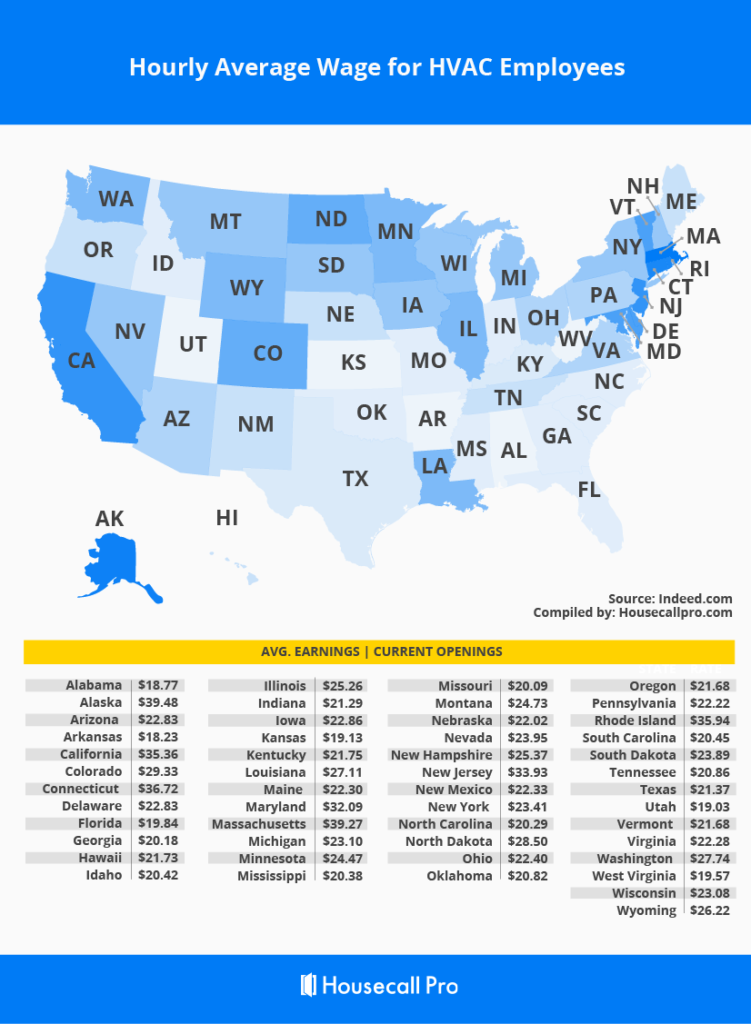
This image is property of images.ctfassets.net.
Types of HVAC Jobs
The HVAC industry is diverse, offering a wide range of career paths to choose from. Some common types of HVAC jobs are HVAC technicians, HVAC installers, HVAC sales representatives, HVAC managers, HVAC engineers, HVAC designers, HVAC maintenance technicians, and HVAC apprentices. Let’s take a closer look at each of these roles.
HVAC Technician
HVAC technicians are responsible for diagnosing, repairing, maintaining, and installing heating, ventilation, and air conditioning systems. They are skilled professionals who ensure that HVAC systems operate efficiently and meet the needs of clients. HVAC technicians may work for HVAC service companies, building maintenance departments, or as independent contractors.
HVAC Installer
HVAC installers specialize in the installation of HVAC systems. They work closely with construction teams during the building phase to install heating, cooling, and ventilation systems according to design specifications. HVAC installers are skilled in reading blueprints, handling a variety of equipment and tools, and ensuring that installations meet industry standards and regulations.
HVAC Sales Representative
HVAC sales representatives are responsible for promoting and selling HVAC products and services to potential clients. They often work for HVAC manufacturers, distributors, or service companies. HVAC sales representatives must have excellent communication and interpersonal skills to build relationships with clients, understand their needs, and recommend suitable HVAC solutions.
HVAC Manager
HVAC managers oversee the operations of HVAC departments or companies. They are responsible for managing a team of HVAC professionals, coordinating projects, ensuring compliance with regulations, and overseeing budgets and expenses. HVAC managers require strong leadership and organizational skills to effectively manage teams and ensure the success of HVAC projects.
HVAC Engineer
HVAC engineers are involved in the design, development, and implementation of HVAC systems. They work closely with architects and building design teams to create efficient and sustainable HVAC solutions. HVAC engineers must possess a strong understanding of thermodynamics, fluid mechanics, and energy conservation principles to design HVAC systems that meet the specific needs of buildings and occupants.
HVAC Designer
HVAC designers collaborate with architects and engineers to design HVAC systems that meet the heating, cooling, and ventilation requirements of buildings. They create detailed plans and specifications for HVAC installations, taking into consideration factors such as building layout, occupancy needs, energy efficiency, and sustainability. HVAC designers use software programs and calculations to ensure optimal system performance.
HVAC Maintenance Technician
HVAC maintenance technicians specialize in the regular maintenance and upkeep of HVAC systems. They perform routine inspections, clean and replace filters, lubricate moving parts, and troubleshoot any issues that may arise. HVAC maintenance technicians help ensure that HVAC systems operate efficiently, identify potential problems before they escalate, and extend the lifespan of equipment.
HVAC Apprentice
HVAC apprentices are individuals who are new to the HVAC industry and are learning the trade under the guidance of experienced professionals. They gain hands-on experience by assisting with various tasks, such as installations, repairs, and maintenance. HVAC apprentices often attend vocational or technical schools while working alongside experienced technicians, earning a salary that increases as they gain skills and knowledge.
Average Salary for HVAC Technicians
HVAC technicians play a crucial role in the HVAC industry. Their responsibilities include diagnosing and repairing HVAC systems, performing maintenance tasks, and ensuring the efficient operation of heating, cooling, and ventilation systems. The average salary for HVAC technicians can vary depending on several factors.
National Averages
According to the Bureau of Labor Statistics (BLS), the median annual wage for HVAC technicians was $50,590 as of May 2020. This means that half of HVAC technicians earned more than this amount, while the other half earned less.
Salary by Experience Level
Experience is a significant factor in determining the salary of HVAC technicians. Entry-level HVAC technicians with limited experience can expect to earn a lower salary, whereas technicians with several years of experience can command higher salaries. As technicians gain more experience, their expertise and ability to handle complex projects increase, leading to higher earning potential.
Salary by Education Level
While a formal education is not always required to become an HVAC technician, completing a vocational or technical program can enhance job prospects and potentially lead to higher salaries. HVAC technicians who have completed a degree or certification program may have a competitive advantage over those with only on-the-job training.
Salary by Certification
Obtaining relevant certifications can also impact the salary of HVAC technicians. Certifications such as EPA 608 and NATE certifications demonstrate a technician’s knowledge and proficiency in specific areas, which may result in higher pay. Many employers value these certifications and are willing to offer higher salaries to technicians who possess them.
Salary by Location
Location plays a significant role in determining the salary of HVAC technicians. Salaries can vary depending on factors such as the cost of living, demand for HVAC services, and the presence of unions. HVAC technicians working in high-demand areas or regions with higher living costs may earn higher salaries compared to those in less competitive or lower-cost areas.
Overall, HVAC technicians can earn a respectable salary that can increase with experience, education, certifications, and location. It is worth noting that individuals who are motivated, dedicated, and continuously work on improving their skills have the potential to earn above-average salaries in the HVAC industry.
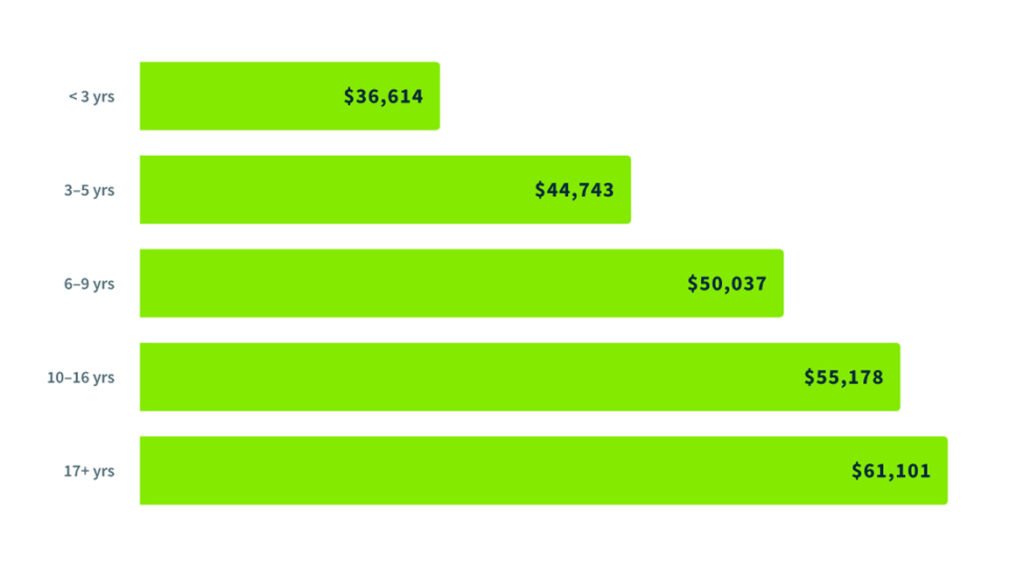
This image is property of www.achrnews.com.
Average Salary for HVAC Installers
HVAC installers are responsible for the installation of HVAC systems, ensuring that they are properly set up and functioning efficiently. The salary of HVAC installers can vary based on different factors.
National Averages
According to the BLS, the median annual wage for HVAC installers was $50,590 as of May 2020. Keep in mind that this figure represents the middle point, with half of HVAC installers earning more and half earning less.
Salary by Experience Level
Experience plays an important role in determining the salary of HVAC installers. Entry-level installers with limited experience typically earn a lower salary, whereas those with several years of experience can earn higher salaries. Experienced HVAC installers often possess advanced skills and are capable of handling complex installation projects, which makes them more valuable to employers.
Salary by Education Level
While a formal education is not always required to become an HVAC installer, completing a vocational or technical program can enhance job prospects and potentially lead to higher salaries. HVAC installers who have completed relevant coursework may possess a better understanding of HVAC systems and installation techniques, which can make them more desirable to employers and result in higher pay.
Salary by Location
As with HVAC technicians, the location in which HVAC installers work can significantly impact their salaries. HVAC installers in high-demand areas or regions with a higher cost of living may earn higher salaries due to increased competition and the need to attract skilled installers. Conversely, installers in less competitive or lower-cost areas may earn lower salaries.
It is important to note that salary is not the only factor to consider when pursuing a career as an HVAC installer. Job satisfaction, opportunity for growth, and the potential to learn and develop new skills are also important considerations in any career choice.
Average Salary for HVAC Sales Representatives
HVAC sales representatives play a vital role in promoting and selling HVAC products and services to clients. The salary of HVAC sales representatives can vary based on several factors.
National Averages
As of May 2020, the BLS reported that the median annual wage for wholesale and manufacturing sales representatives, including HVAC sales representatives, was $62,930. It is important to note that this figure represents the median, meaning that half of the sales representatives earned more than this amount and half earned less.
Salary by Experience Level
Experience is a significant factor influencing the salary of HVAC sales representatives. As sales representatives gain more experience in the industry, they often develop a broader network, stronger relationships with clients, and a deeper understanding of the products and services they are selling. As a result, experienced sales representatives may earn higher salaries compared to those who are just starting their careers.
Salary by Education Level
While a formal education is not always required for HVAC sales representatives, individuals with a background in sales or a related field may have a competitive advantage. Sales representatives who possess a degree or relevant coursework in fields such as marketing, business, or communication may be able to negotiate higher salaries due to their educational background.
Salary by Location
The location in which HVAC sales representatives work can also impact their salaries. Sales representatives in areas with a higher demand for HVAC products and services, such as densely populated cities or regions with extreme climates, may earn higher salaries. Additionally, sales representatives working for larger HVAC manufacturers or distributors may have access to higher compensation due to the size and reputation of the company.
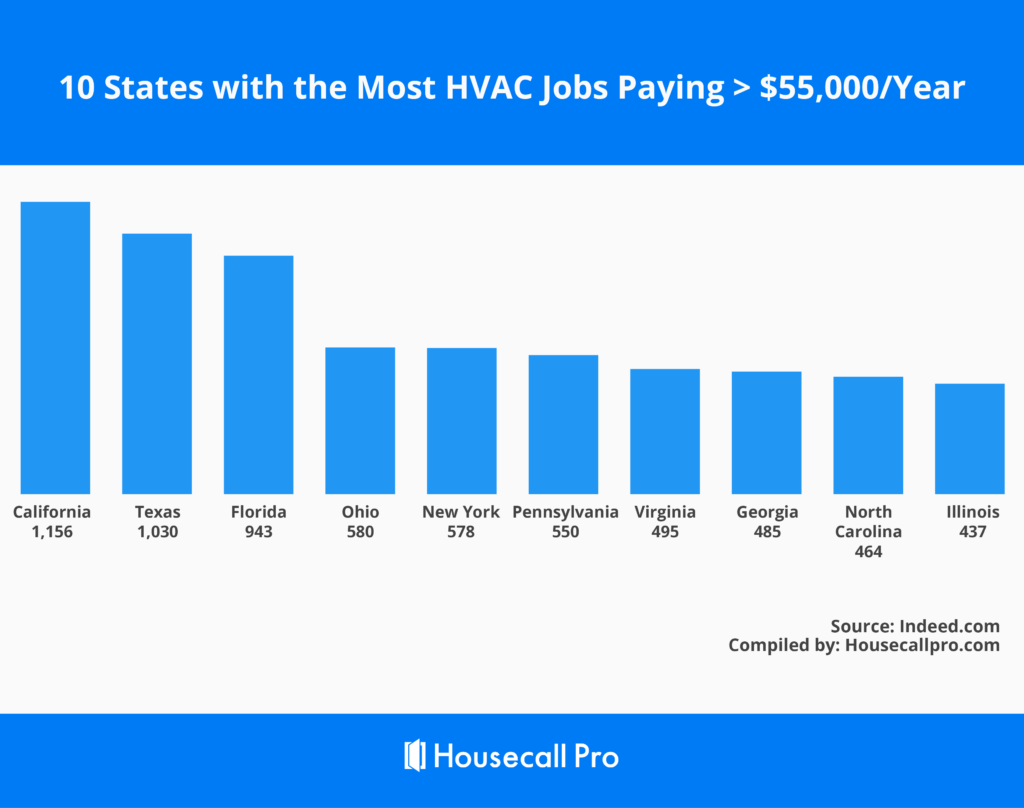
This image is property of images.ctfassets.net.
Average Salary for HVAC Managers
HVAC managers are responsible for overseeing the operations of HVAC departments or companies. Their role involves managing teams, coordinating projects, ensuring compliance with regulations, and handling budgets and expenses. The average salary for HVAC managers can vary depending on various factors.
National Averages
As of May 2020, the BLS reported that the median annual wage for construction managers, which includes HVAC managers, was $99,180. It is important to note that this figure represents the median, meaning that half of the managers earned more than this amount and half earned less.
Salary by Experience Level
Experience is a significant factor influencing the salary of HVAC managers. Managers with several years of experience in the HVAC industry often possess a deep understanding of HVAC systems, project management skills, and strong leadership abilities. As a result, their expertise and track record can lead to higher salaries compared to less-experienced managers.
Salary by Education Level
While a formal education is not always a requirement for HVAC managers, completing a degree or certification program in areas such as construction management, business administration, or engineering can provide a competitive edge. Managers with higher levels of education may have a broader skill set and a better understanding of business principles, resulting in higher earning potential.
Salary by Location
Location plays a significant role in determining the salary of HVAC managers. Managers in high-demand areas or regions with a higher cost of living may earn higher salaries. Additionally, larger cities or areas with a higher concentration of HVAC companies and projects may offer more competitive salaries due to the larger market and increased demand for experienced managers.
Average Salary for HVAC Engineers
HVAC engineers are involved in the design, development, and implementation of HVAC systems. They collaborate with architects and building design teams to create efficient and sustainable HVAC solutions. The average salary for HVAC engineers can vary depending on several factors.
National Averages
As of May 2020, the BLS reported that the median annual wage for architectural and engineering managers, which includes HVAC engineers, was $149,530. It is important to note that this figure represents the median, meaning that half of the managers earned more than this amount and half earned less.
Salary by Experience Level
Experience is a significant factor in determining the salary of HVAC engineers. Engineers with several years of experience in the HVAC industry often possess a deep understanding of HVAC systems, energy conservation principles, and design techniques. Their expertise and ability to handle complex projects can lead to higher salaries compared to less-experienced engineers.
Salary by Education Level
A formal education is typically required to become an HVAC engineer. Many HVAC engineers hold a bachelor’s degree in mechanical engineering or a related field. Higher levels of education, such as a master’s degree or a Ph.D. in mechanical engineering, may lead to more senior positions and potentially higher salaries.
Salary by Location
The location in which HVAC engineers work can significantly impact their salaries. Engineers in areas with a higher cost of living or a greater demand for sustainable building practices may earn higher salaries. Additionally, engineers working for larger engineering firms or in major cities may have access to more lucrative job opportunities due to the size and reputation of the company or the demand for their specialized skills.
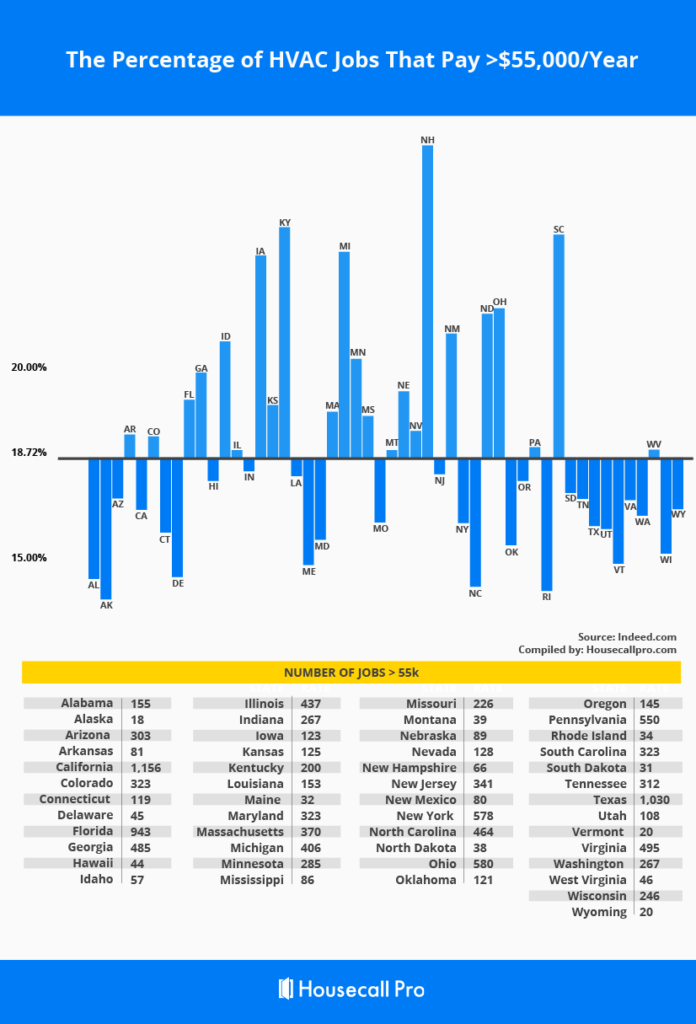
This image is property of www.housecallpro.com.
Average Salary for HVAC Designers
HVAC designers collaborate with architects and engineers to design HVAC systems that meet the heating, cooling, and ventilation requirements of buildings. They create detailed plans and specifications for HVAC installations, incorporating factors such as building layout, occupancy needs, energy efficiency, and sustainability. The average salary for HVAC designers can vary based on different factors.
National Averages
As of May 2020, the BLS reported that the median annual wage for architectural and civil drafters, which includes HVAC designers, was $57,030. It is important to note that this figure represents the median, meaning that half of the drafters earned more than this amount and half earned less.
Salary by Experience Level
Experience is a significant factor in determining the salary of HVAC designers. Designers with more experience have likely worked on a variety of HVAC projects and possess a thorough understanding of design principles and industry standards. As a result, experienced designers may earn higher salaries compared to entry-level designers.
Salary by Education Level
Formal education is often required to become an HVAC designer. Many HVAC designers hold an associate degree or a certificate in drafting or a related field. However, designers with higher levels of education, such as a bachelor’s degree in mechanical engineering or architecture, may have better job prospects and potentially earn higher salaries.
Salary by Location
The location in which HVAC designers work can impact their salaries. Designers in areas with a higher demand for sustainable building practices or larger construction projects may earn higher salaries. Additionally, designers working for larger architecture and engineering firms or in major cities may have access to higher-paying job opportunities due to the size and reputation of the company or the demand for their specialized skills.
Average Salary for HVAC Apprentices
HVAC apprentices are individuals who are new to the HVAC industry and are learning the trade under the guidance of experienced professionals. They gain hands-on experience by assisting with various tasks, such as installations, repairs, and maintenance. The average salary for HVAC apprentices can vary based on different factors.
National Averages
There is no specific data available for the average salary of HVAC apprentices. However, HVAC apprentices generally earn a percentage of the journeyman’s wage while they are completing their apprenticeship program.
Salary by Experience Level
As apprentices gain more experience and progress in their training, they may earn higher wages. Apprenticeships typically last between three to five years, during which apprentices may receive incremental pay increases as they demonstrate competency and acquire new skills.
Salary by Education Level
The education level of HVAC apprentices is typically focused on vocational or technical training. While formal education does not directly impact apprenticeship wages, completing relevant coursework can enhance an apprentice’s knowledge and skill set, potentially leading to better job performance and opportunities for advancement.
Salary by Location
The location in which HVAC apprentices work can influence their wages. Apprentices in areas with a higher cost of living or a greater demand for HVAC services may earn higher wages. Additionally, larger cities or regions with a higher concentration of construction projects may offer more apprenticeship opportunities, which can translate into increased earning potential.
It is worth noting that the salary of HVAC apprentices may increase significantly after completing their apprenticeship program and becoming licensed HVAC technicians or installers. Apprenticeships provide valuable hands-on experience and knowledge, paving the way for a successful and rewarding career in the HVAC industry.
In conclusion, HVAC jobs offer a wide range of career opportunities with varying salary potential. Factors such as location, experience, education, certifications, and the specific HVAC job role all contribute to the average salaries within the industry. It is important to consider these factors when pursuing a career in HVAC to ensure that you have a clear understanding of the salary expectations for your chosen path. Whether you are just starting as an apprentice or aiming for a managerial role, the HVAC industry provides ample opportunities for growth, skill development, and competitive compensation.
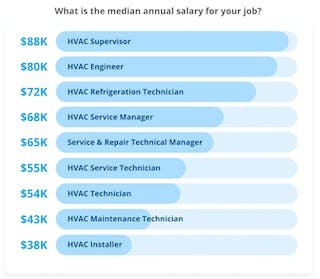
This image is property of img.contractingbusiness.com.

